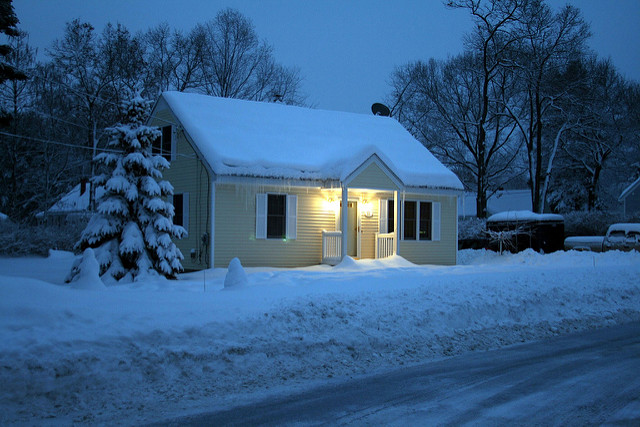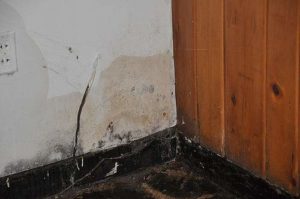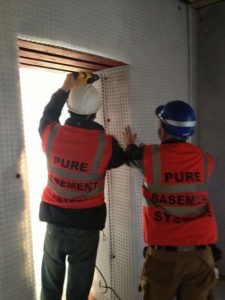Thawing and Freezing: Your Basement/Foundation

Anywhere there’s local problems with geography, builders have to take them into account. Florida’s notorious sinkholes and hurricanes have to always be factored in. In places like B.C., where it’s very damp, mould is a very big issue. Warm places like Australia, basements aren’t even needed at all because there’s no freezing and thawing cycle that makes a deep foundation necessary! Ontario’s deep frost line and always-changing temperature cycle make deep foundations a necessity. Without one, the freezing and thawing would leave your home a mess!
Regardless of how deep your foundation is, freezing and thawing still cause their own set of problems.

wall with water damage
Why Freezing and Thawing are Problems for Your Foundation
It all comes down to the water content in the soil. You know what happens when you fill the ice cube tray too full – the cubes will come above the top. This is a common example of water’s expansion, and since soil holds water really, really well, when the moisture expands, so does the dirt around your home. This exerts a lot of pressure on the foundation walls, and the constant expansion and contraction of all the materials beneath the surface from freezing and thawing can even shift your foundation.
Regardless of how old your home is, this should be a cause for concern. Even when the moisture isn’t directly next to the basement, soil expansion can still have an impact. When pressure is localized on one part of the foundation, you’ll quickly see cracks in that section of the walls. This causes weaknesses that can slowly affect a larger area. This deterioration of the concrete will let melt-water into your basement easily, causing leaks and water damage. The moisture sitting right on your foundation will exploit the weaknesses it creates.
Concrete is a very porous material, so it can be saturated with water. When this water freezes, it also makes the pores in the concrete expand, or get into existing weaknesses to make them much larger. While it won’t always cause immediate problems, over time the weaknesses in the foundation will get much worse. Even though older builds are especially prone, all concrete is susceptible to the damage caused by freezing and thawing.
If you give your foundation the right treatment, though, you could stop a lot of the problems from happening.

basement waterproofing
Round Stone Treatment and Preventing Freezing and Thawing
Because the stresses on your foundation walls can lead to long-term issues, if you apply the right waterproofing safeguards, you can minimize cracks and leaks. This is why the crushed round stone treatment is a great option. This method, which puts a layer of loose rock between your foundation walls and the soil, puts up a direct barrier that also allows moisture to fall through. It can take pressure of your walls, keep the water that would leak through away from your basement, and optimize your drainage.
We don’t have the luxury to just move to Australia. The problems that come with freezing and thawing will affect just about every home in Ontario. Luckily, we’ve come up with solutions that can easily mitigate and prevent what happens during a Canadian winter.
If you need help during fluctuating temperatures, call Ashworth today!
